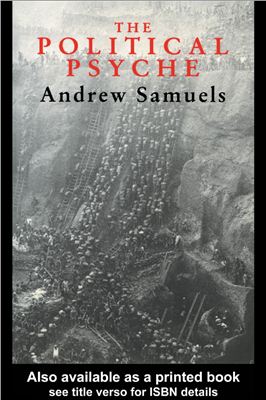A radical and original study, The Political Psyche joins together
depth psychology with politics in a way that fully reflects the
discoveries made in analysis and therapy. In an attempt to show
that an inner jouey and a desire to fashion something practical
out of passionate political convictions are linked projects, author
Andrew Samuels brings an acute psychological perspective to
political issues such as the distribution of wealth, the market
economy, Third World development, environmentalism, and
nationalism-expanding and enhancing our conception of "the
political". However, keeping true to his aim of creating a two-way
dialogue between depth psychology and politics, Samuels also lays
bare the hidden politics of the father, the male body, and men's
issues in general.
The Political Psyche does not collapse politics and psychology together, nor is Samuels unaware of the troubled relationship of depth psychology to the political events of the century. In the book he presents his acclaimed and cathartic work on Jung, anti-semitism and the Nazis to the wider public.
The text employs a political analysis to shed a fascinating light on clinical work. Samuels conducted a large-scale inteational survey of analysts and psychotherapists conceing what they do when their patients/clients bring overtly political material into the clinical setting. The results, including what the respondents reveal about their own political attitudes, destabilize any preconceived notions about the political sensitivity of analysis and psychotherapy.
The Political Psyche does not collapse politics and psychology together, nor is Samuels unaware of the troubled relationship of depth psychology to the political events of the century. In the book he presents his acclaimed and cathartic work on Jung, anti-semitism and the Nazis to the wider public.
The text employs a political analysis to shed a fascinating light on clinical work. Samuels conducted a large-scale inteational survey of analysts and psychotherapists conceing what they do when their patients/clients bring overtly political material into the clinical setting. The results, including what the respondents reveal about their own political attitudes, destabilize any preconceived notions about the political sensitivity of analysis and psychotherapy.

